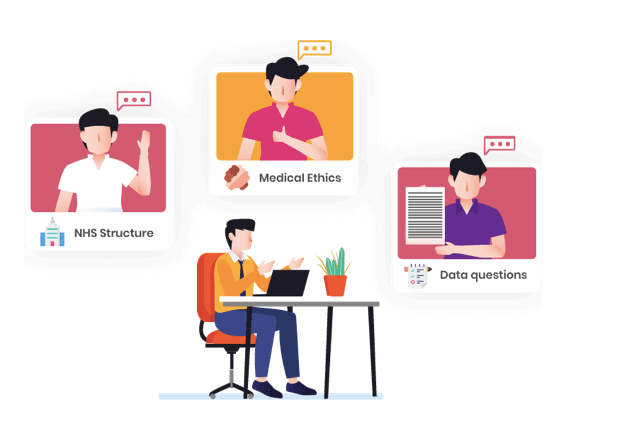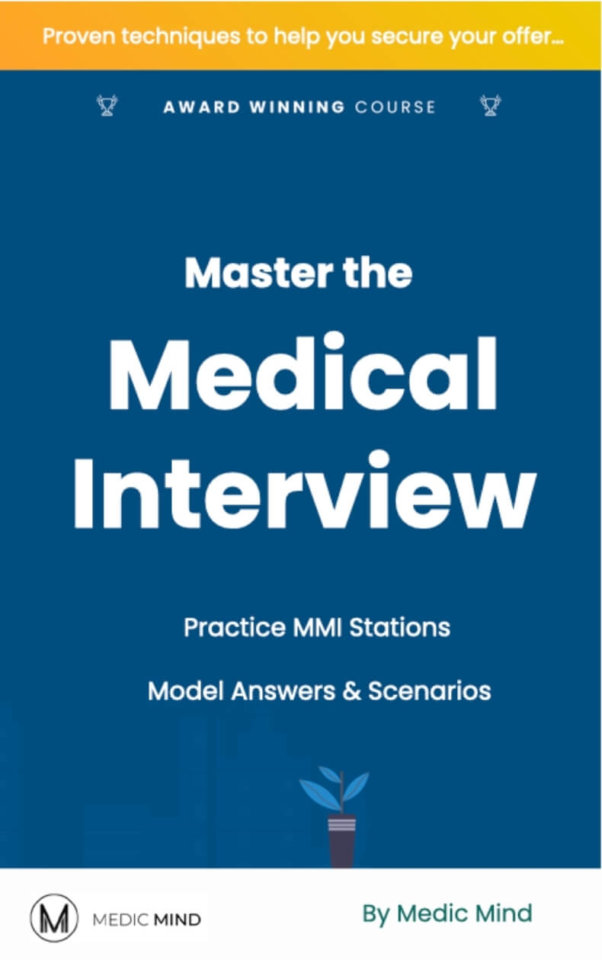Loading...

Medical Panel Interview Preparation Tips
1. Prepare for common questions
Panel interviews tend to be less diverse than MMIs therefore if you prepare well for the commonly asked questions you should perform well.

2. When you prepare, make model answers
Especially for commonly asked questions such as “why medicine?” or on specific skills. Having said this, don’t write a script, this will come off unnatural at interview. Instead, write a bullet point list of a few points for each question. This will help you prepare, but also sound natural in your discussion of the question.
3. You need some core knowledge
The NHS and Medical Ethics are very important topics that are commonly asked at interviews. Therefore, it is really important you are happy with simple topics such as the structure of the NHS, and also ethical dilemmas such as abortion and euthanasia. Check out our other articles on such topics .
4. Know your university
You need to know the course and university inside out, so make sure you have done your research. The interviewers will expect you to know quite a bit about the university, so go above and beyond to impress and leave a great impression. Maybe there is a particular club you are interested in joining at the university, or they offer an iBSc that you particularly like the sound of.
5. Perfect interview etiquette
We all know you shouldn’t judge a book by its cover, but in an interview, that’s exactly what happens. Dress smartly, be clean and polished, maybe even have a fresh haircut, and remember to sit up tall. Also, try to cut out words such as “like” and “basically” from your interview answers. They can seem natural in some sentences, but used too much and it can come across as too informal, ultimately leaving a bad impression.
6. Know your personal statement inside out
It is more likely at a panel interview that one, if not all, of the interviewers will have read your personal statement. They may even have it in front of them during your interview. Therefore, it is imperative that you know your personal statement inside out, and are ready for any question that could be thrown your way!
Kickstart your Interview Prep
7. Use your previous answers
Although you will need to give different examples, you have the benefit of gradually building a relationship with the examiners over the course of your interview. You can say things such as “…as I have previously mentioned…”, to add continuity to your answers. However, as we have said, you will need to use different examples for different. This will help to show you have a broad range of experience and also keep the examiners interest.
8. Speak to everyone on the panel
The panel of interviewers will usually have 2-3 interviewers, but sometimes can have more. Therefore it is important to address every single person on the panel when answering questions. Remember, it isn’t just the person who asked you the question who is marking you. Therefore, make eye contact with all interviewers. Chances are you will be drawn to one interviewer more, especially if they are being warmer in their responses than another interviewer. In this case, it is especially important to distribute your concentration evenly across the panel.
9. Identify what the question is really asking you
This does take a bit of practice, which is why it is so important to prepare well for your interview. Getting to the bottom of what the question is really asking you in relation to wanting to study medicine is key to scoring highly at interview. For example, a question asking why don’t you want to be a nurse? Is still asking you why do you want to be a doctor? However, it is also looking for you to distinguish between the two job roles. In this question, for example, you don’t want to spend all your time explaining why you aren’t applying to nursing school, but instead focus on the differences between a nurse and a doctor, and why being a doctor is more appealing and better suited to yourself.
10. Practice, Practice, and Practice
it may seem obvious, but the more practice you do, the better chance you have of performing well. You probably won’t have been to an interview like this before, and chances are you won’t have had to deal with difficult patients, or break bad news. For these sorts of scenarios ask family and friends to help you by playing these roles in some role plays. Make the stations up yourself, or practice with a tutor.
11. Don’t be too rehearsed
It’s very good to practice so you increase in confidence and the fluidity of your answers but you don’t want to sound rehearsed. Avoid completely memorising whole answers and instead create bullet points for common interview questions that you can remember during the interview so these can serve as prompts.
Kickstart your Interview Prep
12. Breathe and enjoy it
I know it’s easier said than done but with all these tips you will be well-prepared for your interview, so after being asked a question take a breath to collect your thoughts before answering as best as you can. Panel interviews often are quite conversational and enable you to establish rapport with your interviewer so engage with them and be enthusiastic so you can enjoy the interview whilst making a good impression.
Good luck!
Frequently Asked Question
→What is a Medicine Panel Interview?
A Medicine Panel Interview is a selection process used by many medical schools to evaluate candidates for admission to their program. The panel usually consists of several faculty members who will ask the candidates a series of questions designed to assess their knowledge, skills, and suitability for the program.
→How can I prepare for a Medicine Panel Interview?
To prepare for a Medicine Panel Interview, candidates should research the medical school thoroughly and familiarize themselves with its values and mission. Candidates should also prepare answers to common interview questions and practice their communication skills.
→What are the most common questions asked during a Medicine Panel Interview?
The questions asked during a Medicine Panel Interview can vary, but they often focus on the candidate’s motivation for pursuing a career in medicine, their academic achievements, and their knowledge of current issues in healthcare.
→How should I dress for a Medicine Panel Interview?
Candidates should dress professionally for a Medicine Panel Interview. Business attire, such as a suit and tie for men or a blouse and skirt or pantsuit for women, is recommended.
→How long does a Medicine Panel Interview last?
The duration of a Medicine Panel Interview can vary, but it usually lasts between 30 minutes to an hour.
→How can I make a good impression during a Medicine Panel Interview?
Candidates can make a good impression during a Medicine Panel Interview by being polite, respectful, and professional. They should also demonstrate good communication skills and show their passion for the field of medicine.
→How important are non-verbal cues during a Medicine Panel Interview?
Non-verbal cues, such as body language and eye contact, are crucial during a Medicine Panel Interview. Candidates should maintain good posture, avoid fidgeting, and make eye contact with the panel members to demonstrate confidence and professionalism.
Related
Related Articles
Personalised 1-1 private lessons, tailored to your GAMSAT needs
With over 1000 GAMSAT questions, worked examples and mock run-throughs - your complete GAMSAT course!
Prepare for the GAMSAT with a full day of expert GAMSAT tuition, learning the tips and tricks to boost your score to the maximum.





Was this article helpful?
Still got a question? Leave a comment
Leave a comment